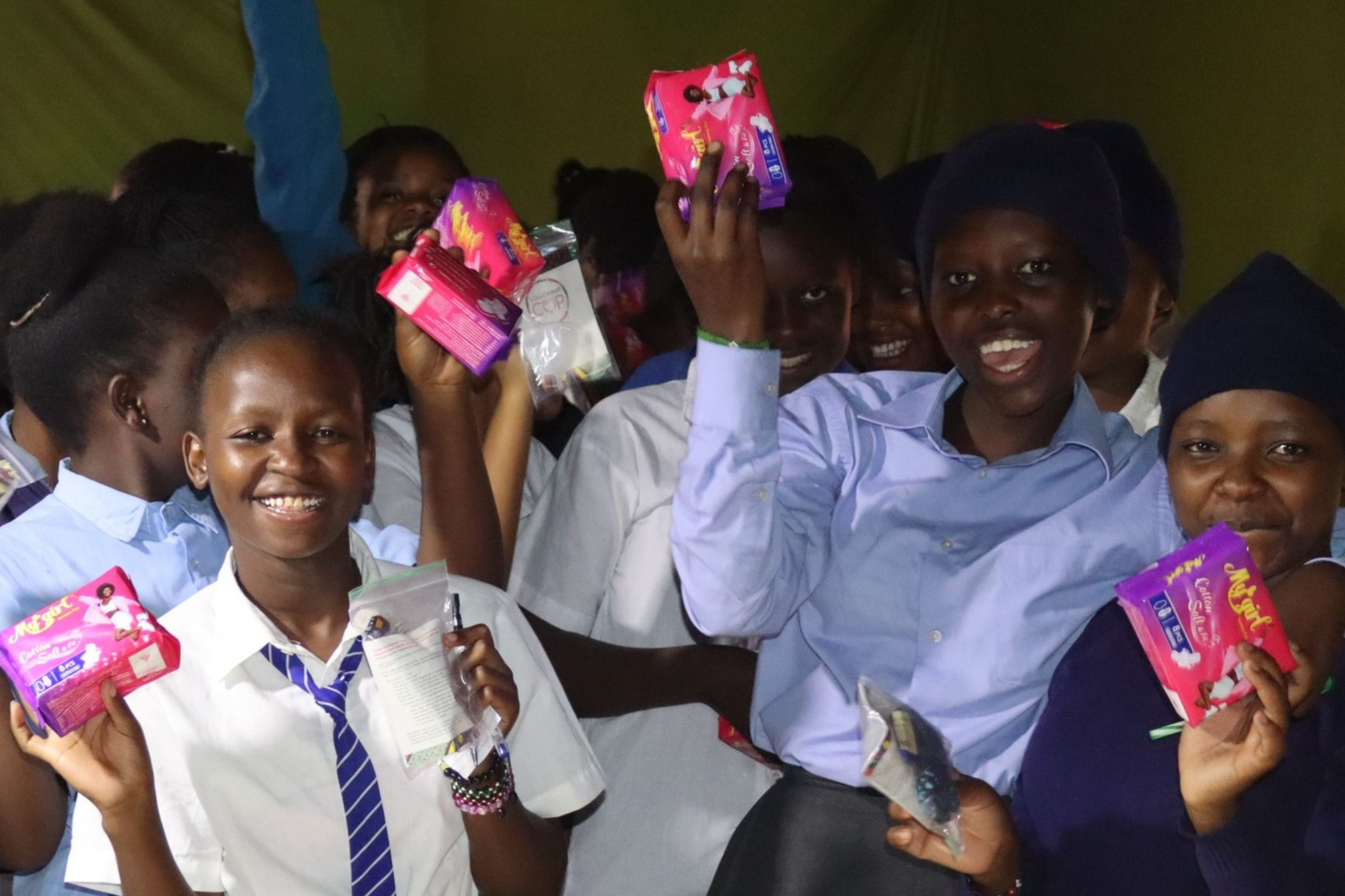









Reach for the Stars:
In many underserved communities across Kenya, periods still cost girls their education. According to Amref Health Africa, over one million girls miss three to four days of school each month due to a lack of menstrual support. That’s not just a health issue, it’s a learning crisis.
In line with Sustainable Development Goal 4 (Quality Education), we held a Menstrual Health and Hygiene (MHH) session at Michelle Winners High with 46 girls aged 14–19. Thanks to a generous donor, we provided sanitary pads, and through a dynamic collaboration with Mary from WOSWA, we introduced the girls to CouldYou?Cup menstrual cups, a sustainable, cost effective alternative.
Creating Safe Spaces for Honest Conversations
We opened the session by gauging the girls’ prior knowledge of menstrual health, whereby we asked if they had received information about menstruation: whether from parents, siblings, teachers, or health experts and three-quarters of the girls raised their hands. This created a safe space for them to actively and confidently participate in the conversation.
This was followed by asking the girls who they first approached when they experienced menarche. The majority responded that they told their mothers or aunties.
We then asked the girls to describe how they felt when they got their period.
“I was happy because I knew I had grown.” shared Sarah, the school’s student Christian Union leader.
While some girls expressed joy, others admitted to feelings of embarrassment, shame, and confusion.
As one girl put it, “How do you even start to tell your parents that you have had your first period!”
Another student shared a traumatic memory from primary school, recalling how other girls teased those who had started their periods, giving them nicknames and laughing at them.
This fear is largely the result of a lack of menstrual education and the stigma that still surrounds menstruation.
Breaking Down Myths, One Fact at a Time
Understanding that menstruation is a natural process and a sign of health and vitality is key to dispelling harmful myths. Unfortunately, in many communities, menstruation remains a taboo subject, surrounded by silence and misinformation.
We asked the girls to share any menstrual myths they had heard and what came up was both surprising and clear sign of how much misinformation is still out there.
One student mentioned a belief that menstruating women and girls should avoid going to the garden because their presence would cause the plants to dry up.
This sparked a mix of reactions, confusion, surprise, and disbelief on how menstruation and plants could be related.
Another student shared that menstruating girls and women were considered impure and were to avoid interacting with others, including going to school or attending church.
These misconceptions demonstrated the stigma that continues to isolate and exclude girls and women. It also illustrates how cultural beliefs can shape our understanding of natural processes.
Challenging these outdated notions with science and education is important for breaking the cycle of misinformation.
Expanding Menstrual Choices
Beyond the stigma, the struggle to afford menstrual products is another harsh reality for many Kenyan women and girls, especially in low-income communities. According to Amref Health Africa stacks, up to 65% of women and girls in Kenya cannot afford sanitary pads.
Without access to affordable products, some girls are forced to take desperate measures, including exchanging sex for sanitary products.
In the final section of the session, we handed out questionnaires, with one of the questions asking if any of the students or someone they knew had exchanged sex for pads.
More than five girls checked the ‘yes’ box.
This is the sad reality of period poverty.
While disposable sanitary pads and tampons are the most common menstrual management products, many girls are unaware of other alternatives. During the session, we explored options such as washable pads and menstrual cups, which are eco-friendly, cost-effective, and long-lasting.
Mary, our MHH champion, introduced the girls to menstrual cups as a sustainable alternative to disposable pads, lasting up to ten years with proper care. She also demonstrated how to use, clean, and dispose of the cups, addressing common misconceptions such as the fear that the cup could get stuck in the vaginal canal, break one’s virginity, or fall out during daily activities.
Help Us Keep Girls in School
To conclude the session, we distributed sanitary pads and the CouldYou?Cup donated menstrual cups, ensuring that the girls had the necessary tools to manage their menstrual health with dignity.
Support our mission to ensure no girl misses school because of her period. Donate Ksh 1,680 (13 USD) today and help us reach more schools, providing girls with the menstrual health education and products they need to thrive.


